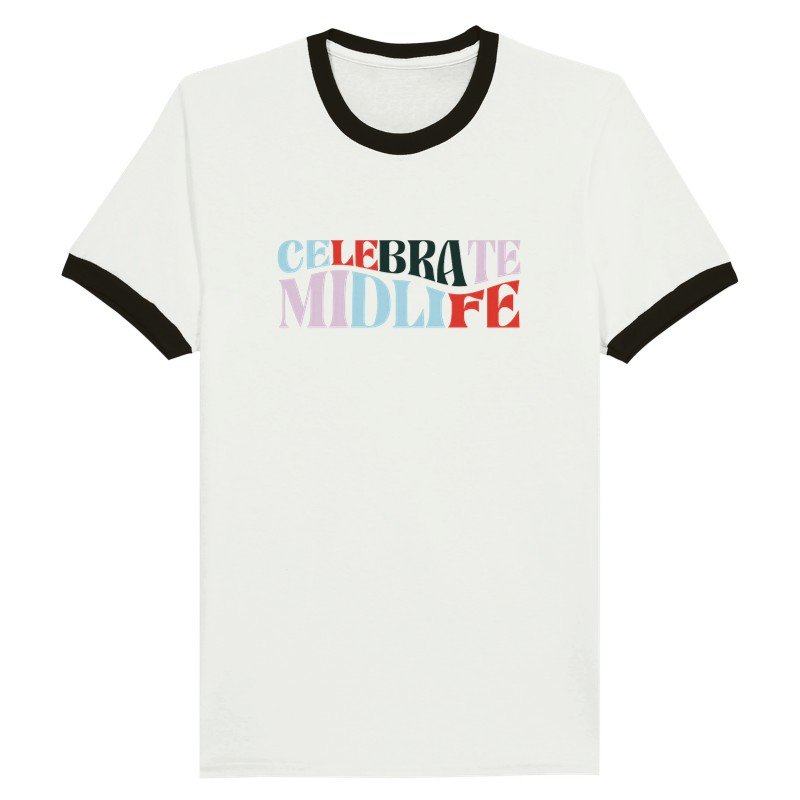Turning Up the Heat: How to Own Your Personal Summers and Thrive in Midlife
Personal Summers: Navigating Hot Flashes with Confidence and Comfort
Hot flashes ”aka personal summers” are an unavoidable reality for most midlife women. They strike without warning, leaving you drenched, breathless, and wondering if you’ve accidentally wandered into a sauna. For some, they’re a mild inconvenience. For others (like me), they’re a full-blown ordeal that can feel like your body is staging an internal coup.
Let me tell you, my journey with hot flashes has been anything but graceful. They started with night sweats at age 36, waking me up in a pool of sweat like I had just run a marathon in my sleep. By my mid-40s, I spent half my day sitting in front of the freezer with ice packs on my neck and chest, desperately trying to cool down. These weren’t just warm flushes; they were debilitating. A slow-rolling volcano would build inside me until it erupted in a fiery inferno, leaving me short of breath. Then, just as suddenly as the heat hit, I’d be left shivering with teeth-chattering chills, like I’d been dropped in the Arctic.
Now, at 50, things have improved thanks to synthetic hormone patches, but my menopause journey has been filled with learning curves, some of which I wish I’d known sooner. For example, I recently discovered that my IUD was a year past its expiration date, meaning it was no longer providing the necessary progesterone to balance my estrogen intake. This put me at a higher risk for uterine cancer, and I found out not from my doctor, but from my best friend’s sister. So, off came my estrogen patch, and here I am, adjusting once again.
The moral of the story? Menopause is a wild ride, and you have to be your own advocate. That’s why I’ve compiled this guide, so you don’t have to sit in front of the freezer like I did.
What Are Hot Flashes?
Hot flashes are sudden, intense heat waves that typically start in the chest and face before spreading throughout the body. They last anywhere from a few seconds to 10 minutes and can be accompanied by sweating, a rapid heartbeat, dizziness, and even chills (Mayo Clinic, 2024).
According to the North American Menopause Society (NAMS), 75-80% of women experience hot flashes during perimenopause and menopause (Santoro et al., 2023). Some lucky ones only have them for a few years, while others (like me) can deal with them for a decade or more.
What Causes Hot Flashes?
Blame it on hormones! When estrogen levels drop, the hypothalamus, the brain’s temperature control center, goes haywire. It mistakenly thinks your body is overheating and kicks in the cooling system by dilating blood vessels (hello, face flush) and triggering sweat glands (cue the dripping).
Common Triggers
While declining estrogen is the root cause, these factors can make things worse:
Spicy foods - Can mimic heat sensations and make flashes worse.
Alcohol and caffeine - Both can dilate blood vessels and intensify sweating.
Stress and anxiety - Increased cortisol can trigger a flash.
Tight clothing - Traps heat and prevents natural cooling.
Warm environments - Sleeping under heavy blankets or sitting in a heated car can set off an episode.
How Long Do Hot Flashes Last?
There’s no universal timeline, but research suggests:
Most women experience hot flashes for 6 months to 2 years.
Some deal with them for 10+ years (Harvard Health, 2023).
African American and Hispanic women tend to have more severe and longer-lasting hot flashes than Caucasian and Asian women (Study of Women’s Health Across the Nation, SWAN, 2022).
Since there’s no clear end date, managing symptoms is key.
How to Survive Your Personal Summers
After years of trial, error, and sweat-soaked sheets, I’ve compiled the best evidence-backed strategies to help you stay cool, confident, and in control.
1. Lifestyle Adjustments
Dress in layers - Stick to breathable fabrics like cotton and linen. Layers make it easy to adjust when the heat strikes.
Keep your bedroom cool - Sleep in a 65°F (18°C) room with moisture-wicking sheets.
Carry a portable fan - A small handheld fan can be a lifesaver during surprise flashes.
Stay hydrated - Cold water can help regulate body temperature and keep you cool.
Take cold showers - Or, if you’re in a rush, run cold water over your wrists for quick relief.
2. Diet and Nutrition
What you eat can either fuel the fire or cool things down.
Eat more phytoestrogens - Found in soy, flaxseeds, and lentils, these plant-based estrogens may help balance hormones.
Boost magnesium intake - Magnesium supports body temperature regulation. Find it in leafy greens, nuts, and seeds.
Avoid sugar and processed foods - Excess sugar can spike insulin, which may worsen symptoms.
3. Reduce (or eliminate) Alcohol
Triggers Body Temperature Changes – Alcohol causes blood vessels to dilate, leading to a sudden feeling of warmth, which can intensify hot flashes.
Disrupts Hormonal Balance – Alcohol can affect estrogen levels, making hormonal fluctuations more unpredictable.
Dehydrates the Body – Dehydration can worsen night sweats and hot flashes, making them more intense.
Affects Sleep Quality – Even small amounts of alcohol can disrupt sleep, making nighttime hot flashes more noticeable.
4. Exercise and Stress Reduction
Yoga and meditation - Studies show mindfulness can reduce the frequency and severity of hot flashes (Journal of Women’s Health, 2023).
Strength training and cardio - Regular exercise helps balance hormones and improves circulation.
Breathwork - Deep breathing techniques, like 4-7-8 breathing, can help during an active flash.
5. Medical Treatments and Supplements
If lifestyle changes don’t cut it, there are medical options.
Hormone Replacement Therapy (HRT) - HRT (like the estrogen patch I was on) is the most effective treatment for hot flashes. However, it’s not for everyone, women with a history of breast cancer, blood clots, or heart disease should discuss risks with their doctor (American College of Obstetricians and Gynecologists, 2024).
Non-Hormonal Medications
SSRIs (antidepressants like Paxil or Effexor) - Reduce hot flashes by up to 60%.
Gabapentin (Neurontin) - Originally for seizures, but helps with nighttime hot flashes. I recently started taking Gaba’s and am working with my doc on dosage, waking up “high” has not been my favorite side effect.
Clonidine - A blood pressure medication that may help.
Herbal and Natural Remedies
Black Cohosh - Some studies suggest it helps; others show no effect.
Evening Primrose Oil - May support hormone balance.
Maca Root - A traditional remedy some women swear by.
*Always check with your doctor before trying supplements, as they can interact with medications.
Final Thoughts: Embrace the Heat
Hot flashes may be an unavoidable part of midlife, but they don’t have to control your life. With the right strategies, you can manage them effectively and keep your cool, literally.
Instead of dreading my next personal summer, I now see it as a reminder of my body’s transformation. This isn’t just menopause; it’s metamorphosis. I’m stepping into a new chapter, stronger, wiser, and (yes) hotter than ever.
So, if you find yourself standing in front of the freezer, ice pack on your chest, know this: You’re not alone. And no matter how intense the heat gets, you’ve got this. Embrace these personal summers with confidence, knowing that you have the tools and knowledge to manage them comfortably.
References
American College of Obstetricians and Gynecologists (2024). Managing Menopausal Symptoms: A Clinical Guide.
Harvard Health (2023). How Long Do Hot Flashes Last?
Mayo Clinic (2024). Menopause: Symptoms and Treatments.
North American Menopause Society (2023). Hot Flashes and Night Sweats: Causes and Management.
SWAN Study (2022). Ethnic and Racial Differences in the Menopausal Transition.
Journal of Women’s Health (2023). Mindfulness-Based Interventions for Menopausal Symptoms.
I ❤️ Your Comments
Let’s build a community together!! Join our community of like-minded individuals who are embracing life’s second act with enthusiasm and passion and share your inspiration and tips on celebrating midlife below. Want to connect on a more personal level!? You can find me on Instagram, Facebook, TikTok, & Pinterest!
xo, ChaCha
FOLLOW ME











